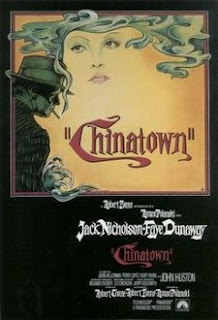Finance is not something that ordinarily makes for interesting viewing. Oliver Stone's Wall Street was very much the exception that proved the rule. Indeed the sequel proved this beyond any doubt. However the crisis which engulfed the global economy in 2008 is to good a tale not to make it to the screen. Based on Andrew Ross Sorkin's bestseller of the same name, today's flick of the day is the best attempt thus far to tell that story.
was very much the exception that proved the rule. Indeed the sequel proved this beyond any doubt. However the crisis which engulfed the global economy in 2008 is to good a tale not to make it to the screen. Based on Andrew Ross Sorkin's bestseller of the same name, today's flick of the day is the best attempt thus far to tell that story.
Directed by Oscar winner Curtis Hanson, whose LA Confidential we reviewed recently, the film focuses on the short few months from the failure of American giant Bear Stearns to the collapse of another banking giant Lehman Brothers as seen through the eyes of the men who experienced those heady days. Hank Paulson, the US Treasury Secretary is played by William Hurt, just one of a star studded cast including Paul Giamatti as Chairman of the Fed Ben Bernanke, James Woods as a maniacal version of the head of Lehman Brothers Dick Fuld. The cast is rounded out by the solid Topher Grace, Billy Crudup, Bill Pullman and Cynthia Nixon. The film manages to make what is a dry topic entertaining and tension filled as the clock counts down to oblivion. The leads are well cast even if it is a stretch to imagine Giamatti as Ben Bernanke.
The real strength of the film is managing to tell its story without oversimplifying the facts. The decisions made in those few months will have repercussions for years to come. If there is one criticism it is the constant focus on New York ignoring the events in London and Asia which were well covered in Sorkin's book.
Henry Paulson: The Fed can lend to non banks under unusual and exigent circumstances, we're thinking of taking over 80% of the company.
Jim Wilkinson: Hank we can't! This morning we were lecturing the entire country on morale hazard.
Henry Paulson: AIG has collateral, they have assets, Lehman didn't, we couldn't lend into a hole, its not the same story!
Jim Wilkinson: Nobody is going to care, its another bailout, with no legislation, the Hill is gonna go crazy, the country is gonna go crazy.
Henry Paulson: The plane we flew in on this morning leased from AIG, construction downtown AIG, life insurance 81 million policies with a face value of 1.9 trillion. Billions of dollars in teachers pensions, you want to big to fail here it is! You got a better idea -the suggestion box is wide open!
Another fine production from HBO Films, it is a testament to the quality of that channel's output that Sorkin's book was adapted there rather then in a large Hollywood studio.
Overall this is a worthy account of a very interesting period in modern history told well by a talented film-maker. Hanson makes good use of an equally talented cast with William Hurt particularly strong as Paulson. Well worth a look for anyone still trying to comprehend the events of those days and has much to offer even those with an interest in the topic.



























